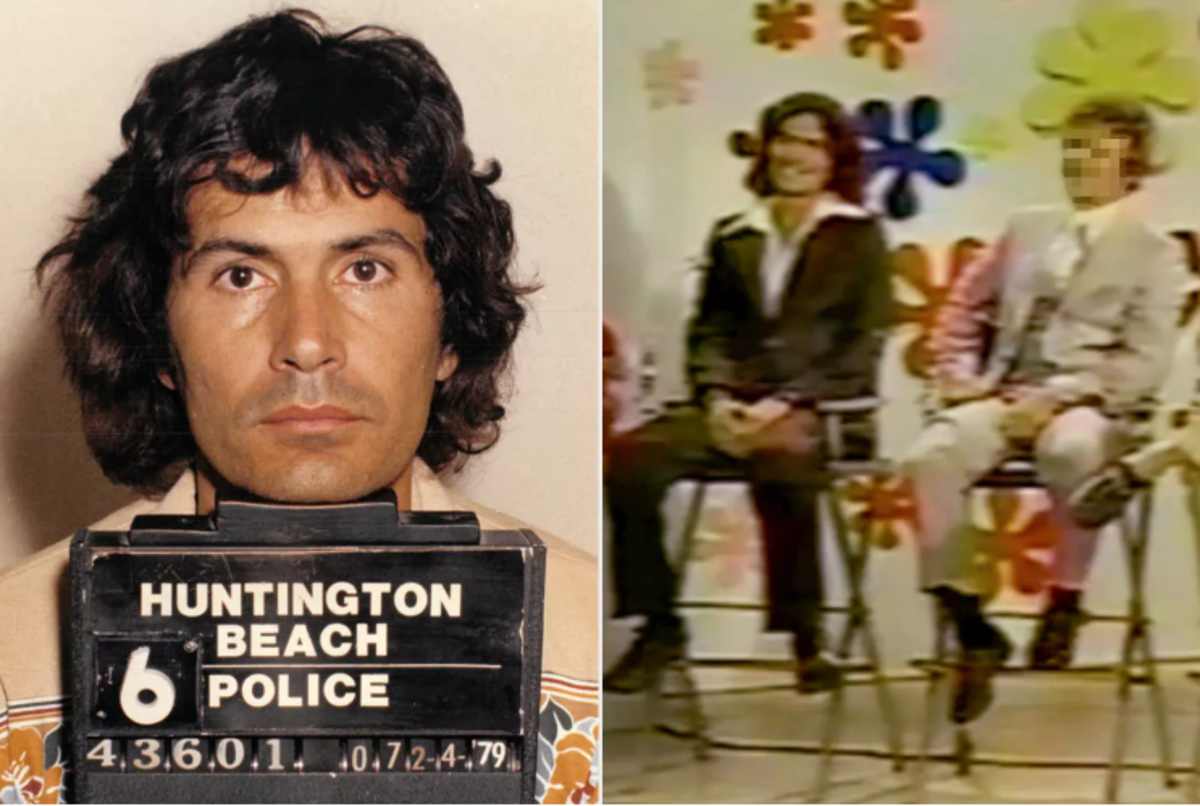Rodney alcala dating game – Rodney Alcala’s appearance on “The Dating Game” in 1978 sent shockwaves through the nation, revealing a sinister reality lurking beneath the show’s cheerful facade. Alcala’s charming demeanor and winning smile concealed a dark secret, making this episode a chilling reminder of the dangers that can lie hidden in plain sight.
Alcala’s victims, ranging from young girls to adult women, met tragic ends at the hands of this cunning predator. His modus operandi involved luring his victims with promises of photography sessions or modeling opportunities, only to subject them to unspeakable horrors.
Rodney Alcala’s Appearance on “The Dating Game”
Rodney Alcala, a serial killer later convicted of murdering seven women and a 12-year-old girl, appeared on the popular dating show “The Dating Game” in 1978. During his appearance, Alcala displayed a charming and charismatic demeanor, which belied his sinister nature. He engaged in witty banter with the show’s host, Jim Lange, and the bachelorette, Cheryl Bradshaw, impressing them with his intelligence and humor.
Audience Reactions
The audience members present during Alcala’s appearance were unaware of his dark past and responded positively to his performance. They laughed at his jokes, cheered him on, and seemed genuinely charmed by his personality. This positive reception stands in stark contrast to the horrific crimes Alcala would later commit, highlighting the disconnect between his public persona and his true nature.
Bachelorette’s Reaction
Cheryl Bradshaw, the bachelorette who chose Alcala as her date, was initially drawn to his good looks and charming personality. However, she later expressed discomfort and unease during their date, stating that Alcala made her feel “creeped out.” She ultimately chose not to pursue a relationship with him, a decision that may have saved her life.
Alcala’s Victims and Crimes
Rodney Alcala, also known as the “Dating Game Killer,” was a serial killer who committed numerous heinous crimes throughout the 1970s and 1980s. Alcala’s victims were predominantly young women and teenage girls, and his crimes involved abductions, rapes, and murders.
Alcala’s modus operandi often involved luring his victims into his car by offering them rides or posing as a photographer. Once in his vehicle, he would incapacitate them, often using chloroform, before taking them to secluded locations where he would commit his crimes.
Known Victims, Rodney alcala dating game
Alcala’s known victims include:
- Cornelia Michel Crilley (23): Abducted from Manhattan in 1971, her body was found in the trunk of Alcala’s car.
- Ellen Jane Hover (23): Abducted from Sun Valley, Idaho in 1977, her body was found in the foothills near the city.
- Jill Barcomb (18): Abducted from Santa Monica, California in 1977, her body was found in the Hollywood Hills.
- Georgia Wixted (27): Abducted from Malibu, California in 1977, her body was found in Wyoming.
- Charlotte Lamb (32): Abducted from Burbank, California in 1978, her body was found in the Angeles National Forest.
- Jill Parenteau (21): Abducted from Burbank, California in 1979, her body was found in the Angeles National Forest.
- Robin Samsoe (12): Abducted from Huntington Beach, California in 1979, her body was found in the Angeles National Forest.
- Christine Thornton (28): Abducted from Burbank, California in 1979, her body was found in the Angeles National Forest.
- Monique Hoyt (15): Abducted from Seattle, Washington in 1979, her body was found in the Snoqualmie Valley.
- Pamela Jean Lambson (30): Abducted from Manhattan in 1979, her body was found in the East River.
- Elizabeth Ann Coffey (21): Abducted from Burbank, California in 1980, her body was found in the Angeles National Forest.
The Woman of the Hour
Cheryl Bradshaw, a 21-year-old dental assistant, was the unlucky bachelorette who chose Rodney Alcala as her date on “The Dating Game” in 1978. Alcala’s charming demeanor and apparent intelligence fooled Bradshaw and the audience, leaving her horrified when she discovered his true nature.
Impact on Bradshaw’s Life
The aftermath of the incident left a profound impact on Bradshaw’s life. She was initially traumatized by the realization that she had unknowingly chosen a dangerous criminal as her date. The subsequent media attention and public scrutiny further compounded her distress.
Bradshaw’s experience also raised concerns about the lack of background checks on contestants appearing on dating shows. In the wake of Alcala’s selection, stricter screening procedures were implemented to prevent similar incidents from occurring in the future.
The Investigation and Capture of Rodney Alcala
The investigation into Rodney Alcala’s crimes spanned decades and involved multiple law enforcement agencies. The key evidence that led to his arrest was a photograph found in his possession, which depicted a young girl who had been reported missing. The photograph was matched to the missing girl, and Alcala was arrested in 1979.
Rodney Alcala, a notorious serial killer who appeared on “The Dating Game” in 1978, has become a subject of fascination for true crime enthusiasts. For those seeking a deeper dive into the lives of women who have survived encounters with dangerous men, woman of the hour real people offers a compelling exploration of the experiences of victims and their resilience in the face of adversity.
Alcala’s crimes continue to serve as a chilling reminder of the dangers that lurk within seemingly ordinary encounters.
Forensic Science and DNA Analysis
Forensic science and DNA analysis played a crucial role in identifying and apprehending Rodney Alcala. DNA evidence linked him to several unsolved murders, and forensic analysis of his photographs helped identify additional victims.
The Trial and Sentencing of Rodney Alcala
Rodney Alcala was tried for the murders of four women in California: Jill Barcomb, Georgia Wixted, Charlotte Lamb, and Jill Parenteau. The trial began in March 1979 and lasted for several months. The prosecution presented a strong case against Alcala, including eyewitness testimony, forensic evidence, and Alcala’s own incriminating statements.
The jury found Alcala guilty of all four murders and sentenced him to death. However, the death sentence was overturned on appeal, and Alcala was sentenced to life in prison without the possibility of parole.
The Legacy of Rodney Alcala: Rodney Alcala Dating Game
Rodney Alcala’s crimes had a profound impact on the public and the criminal justice system. His heinous acts brought increased awareness to the dangers of serial killers and the importance of victim advocacy. Alcala’s case also influenced the development of crime prevention techniques and the use of DNA evidence in criminal investigations.
Impact on the Public
Alcala’s crimes instilled fear and distrust in the public. His ability to blend in and appear charming made it difficult for people to identify him as a dangerous predator. As a result, many people became more cautious about interacting with strangers and more vigilant about their personal safety.
Impact on the Criminal Justice System
Alcala’s case highlighted the need for more effective crime prevention and victim support measures. Law enforcement agencies increased their efforts to track and apprehend serial killers, and victim advocacy groups emerged to provide support and resources to victims of violent crimes.
Influence on Crime Prevention
Alcala’s crimes led to the development of new crime prevention techniques, such as offender profiling and the use of DNA databases. Offender profiling helps law enforcement identify potential suspects based on their psychological characteristics and behavioral patterns. DNA databases allow investigators to link crimes to specific individuals and track down suspects who may have committed multiple offenses.
Influence on Victim Advocacy
Alcala’s case also influenced the development of victim advocacy efforts. Victim advocacy groups provide support and resources to victims of violent crimes, including counseling, legal assistance, and financial aid. These groups also work to raise awareness about the impact of violent crime and to advocate for victims’ rights.
Last Point
Rodney Alcala’s legacy as a serial killer continues to haunt the annals of true crime. His crimes exposed the vulnerabilities of a society often oblivious to the lurking dangers within its midst. The investigation and trial that brought Alcala to justice showcased the power of forensic science and the unwavering determination of law enforcement.
Alcala’s case serves as a cautionary tale, reminding us to be vigilant and to trust our instincts when something doesn’t feel right. It also underscores the importance of supporting victims of violence and ensuring that justice prevails, no matter how long it takes.




